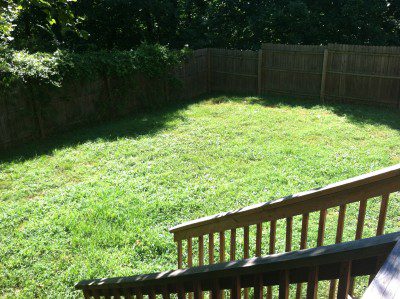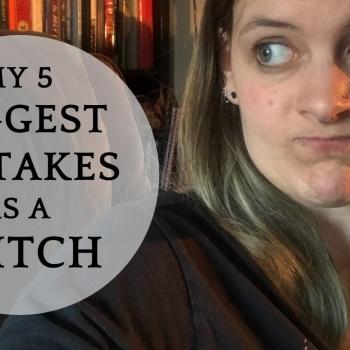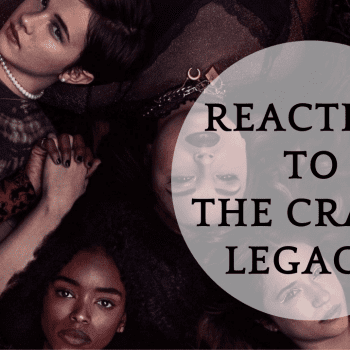
I love the Internet. I love the way it brings people together who’d never have any chance of meeting each other otherwise. I love that so many of my whims and curiosities can be satisfied with just a few minutes on Google. I love how the Internet creates the space for people to be who they are, or who they want to be, or to just recreate themselves entirely. I remember the days before the Internet and I remember how drastically things changed afterward.
But the Internet made things weirder, too. Or harder. Or something.
Wait. Let me rephrase that.
The Internet took some things that have always been weird and hard (or something) and made them faster, louder, and more pervasive.
Take social interaction, for one. Forming friendships, building communities, and establishing social networks have always been tricky things. We’ve always had to deal with anxiety over what “community” really means, or who our “real friends” are. We’ve always asked questions about what “real relationships” should look like. Who’s really “one of us”? People throughout history have argued about these kinds of things in just about any medium you could name.
The Internet just lets us voice our opinions and react to whatever issue is at hand (and publicly air our own dirty laundry, however unintentionally) instantly. What might have taken place in a letters to the editor column in a newsletter over the course of several months fifty years ago now happens overnight in a Facebook group. And it’s not just faster. It’s also bigger. Anyone with a computer or a cell phone can participate in pretty much any conversation. And because the volume is so much louder than it used to be, it looks like our conversations, hang-ups, and controversies are new. And that we’re losing some basic sense of decorum that we used to have.
But usually it’s just more of the same, faster, louder.
Ah, the Internet. Glorious.
Now, I wasn’t a Gardnerian pre-Internet, so I can’t speak to how our community has changed as a result of its introduction. I have no doubt that change was significant.
Primarily, I imagine that it changed how initiates conceived of the boundaries around the tradition. Where originally you probably just had your coven, your parent coven, your Craft siblings, and whomever you knew though publishing and personal correspondence (and maybe local open events and moots, if you were lucky), suddenly you could hear from people across oceans, on the other side of the country or the world, all of whom claimed to be doing the same thing you were doing.
That must have been both awesome and fucking weird.
And we’re not even talking just about Gardnerians here. Any witch or occult tradition could have undergone the same collective experience at the time. Suddenly your community got bigger, the conversations got louder, and became more accessible. But because we’re people and because that means we have the same kinds of problems that people have always had, we could all see pretty quickly that actually, no, we didn’t belong together in one harmonious family spanning the globe. In fact, we didn’t all like each other. Some of us actually weren’t doing things the same way, like we thought we were.
I know. Shocking.
So then we had to figure our how to draw our boundaries. And guess what? We don’t agree on that, either. We’ve got different ideas about where to build our fences. We’re not even building the same kinds of fences for the same purposes.
The Internet makes for some very interesting fence-building. As with all things, it makes constructing boundaries both harder and easier. When it comes to determining who’s inside and who’s outside, it even becomes its own fence (“Well, if so-and-so is legit, how come they’re not in the Facebook group?”). It also changes the pool of people who are willing to vouch for us when we want to cross over into someone else’s yard (because people have different ideas about what makes a good fence and what qualifies someone to hop on over).
So what do we do?
Generally speaking, I’m a fan of boundaries, labels, and standards. Fences. While it’s true that they’re often problematic, sometimes oppressive, and always imperfect, they also help us to orient ourselves in the world. They can give us a better idea of how we fit and whom we can trust. As long as we understand how fence-building works and why we’re building the fence to begin with, I accept that there will always be fences (and a good fence, rather than just keeping people out for the sake of it, protects the property and brings up its value). We need maps, but the map is not the territory itself.
For me, it’s that trust I mentioned that’s the crux. I have an expanding ring of fences where Craft is concerned. My own coven is one fence. Sibling and parent covens represent another, larger fence. Beyond that, witches I’ve circled with personally. Beyond that, witches they’ve circled with personally. On and on, outward. Some fences are more open than others. Some are lined with barbed wire (well, thorns). Even with a vouching system, no one gets access to every layer of everyone’s fence rings. Someone’s individual vouch will necessarily impact some fences more than others. In the center, it’s just me and what I know to be true about myself. No one else owns that property—mine or yours.
The Internet means we have to build some pretty long fences, and that doesn’t always work out very well. Just because I can vouch for someone at one layer doesn’t mean they have access to the inner layers. Getting invited to the neighborhood cookout doesn’t mean you can come over for dinner. If you want to come to dinner, you need a different sort of vouch than if you just want to move onto the same street. Other households will have different standards. If someone wants an invitation, vouching matters (and if you don’t want what I’m cooking, that’s cool, too). How and where we build our fences matters. But it’s not nearly as simple as we sometimes make it out to be. Ultimately, the issue is about trust and using our better judgment.
And that’s an old, familiar issue, no matter what our communities are.
The Internet just makes it louder and faster.















